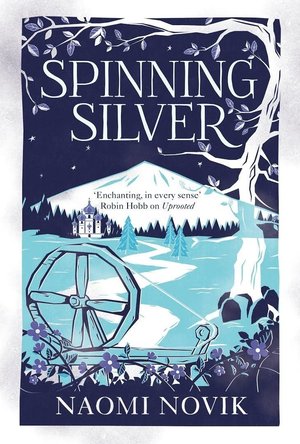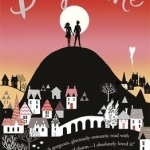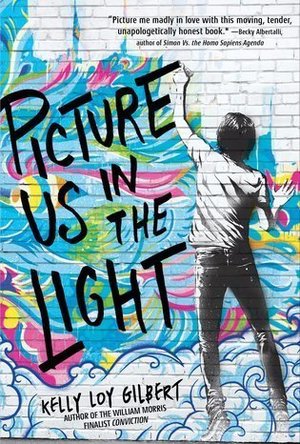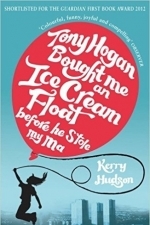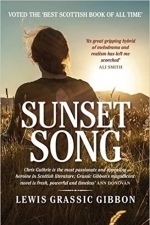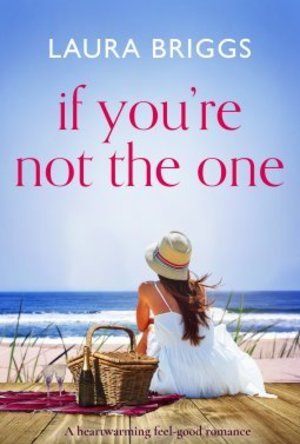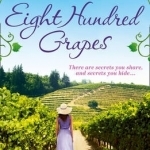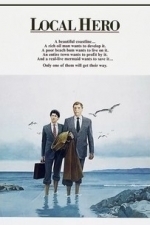Search
Micky Barnard (542 KP) rated Spinning Silver in Books
Dec 6, 2018
Heroes and villains
I am all smug contentment on finishing SPINNING SILVER, the ending was utter completeness. This is a complex fantasy novel, definitely modelled in the background by a dark fairytale that would be familiar to any reader.
The book starts off with a female protagonist Miryem, such a young woman of determination, focus, self-belief and strength. What happens is that slowly, as the tale unfolds, two other female characters Wanda and Irina join the tale to be key storytellers. I absolutely loved the slow revealing of these other lead characters. All three females had experienced difficult childhoods in different ways which I believe led to their tenacious characters.
What is pretty hilarious is that nearly every single male character is a total tool. They are almost too numerous to be named but I have to speak of Mirnatius and the hideousness of his character, even though there is more to it than that. The King of the Staryk needs particular mention because although I should have hated him, I didn’t. He captivated me and drew me in. Frustratingly, despite the physical description, I couldn’t quite paint a picture of him. I loved reading about the Staryk, the kingdom, the people. I just couldn’t hate this King.
SPINNING SILVER was complicated in many ways, sometimes confusing but ultimately enlightening if I just waited to put the pieces together. The description of people, sights, sounds and the environment were seamlessly brought to life. The tale itself was easy to slip into from the first few pages and although I experienced a plodding sensation at two thirds of the way, it picked up again.
Naomi Novik has followed up from UPROOTED and given us a tale to rival and match but with a very different feel and context. I thoroughly enjoyed my reading journey and I can’t wait to discuss this with my friends.
I voluntarily read an early copy of this book.
The book starts off with a female protagonist Miryem, such a young woman of determination, focus, self-belief and strength. What happens is that slowly, as the tale unfolds, two other female characters Wanda and Irina join the tale to be key storytellers. I absolutely loved the slow revealing of these other lead characters. All three females had experienced difficult childhoods in different ways which I believe led to their tenacious characters.
What is pretty hilarious is that nearly every single male character is a total tool. They are almost too numerous to be named but I have to speak of Mirnatius and the hideousness of his character, even though there is more to it than that. The King of the Staryk needs particular mention because although I should have hated him, I didn’t. He captivated me and drew me in. Frustratingly, despite the physical description, I couldn’t quite paint a picture of him. I loved reading about the Staryk, the kingdom, the people. I just couldn’t hate this King.
SPINNING SILVER was complicated in many ways, sometimes confusing but ultimately enlightening if I just waited to put the pieces together. The description of people, sights, sounds and the environment were seamlessly brought to life. The tale itself was easy to slip into from the first few pages and although I experienced a plodding sensation at two thirds of the way, it picked up again.
Naomi Novik has followed up from UPROOTED and given us a tale to rival and match but with a very different feel and context. I thoroughly enjoyed my reading journey and I can’t wait to discuss this with my friends.
I voluntarily read an early copy of this book.
Eleanor Luhar (47 KP) rated Billy and Me in Books
Jun 24, 2019
This is a very, very different genre than I usually read. It was romantic and contemporary and kind of cliche and gross. But I will admit that it was written well.
Despite the gooey topics, this book was easy to sit and read through. The writing was good, though some of the speech didn't feel particularly authentic. My main problem was how cliche this was. A young woman who loves classic literature andworks in a tea shop meets a movie star without realising who he is and falls in love... Yeah, it's kind of a stereotypical romance. I hate this sort of thing. It's tacky and just ugh. But there was more to it than just the romance, which was very good. Sophie had her own issues to deal with, stemming from childhood grief and caring for her mother. It even had a really tragic moment toward the end, that didn't involve the actor - Billy - much at all.
As I mentioned above, the language wasn't always particularly fluid. It sometimes felt like Fletcher was trying too hard to make it more romantic and emotional. Billy was pretty much 'perfect' and extremely romantic, probably extremely unrealistically so. He was likeable, still, just not very realistic.
Sophie herself was a bit... not annoying, but she's not my favourite protagonist ever. She was trying too hard to be unique and strong and independent and it just irritated me. I get what Fletcher was going for (I think) but I just didn't love Sophie that much at all.
Like most other contemporary novels (not that I've actually read many of them), Sophie's life comes together perfectly at the end. Well, not quite perfectly, but the ending was sickly sweet. But I'm a bit of a cynic. You might like this more than me.
Despite the genre and gross cutesy lovey stuff, I think this deserves 3.5 stars. The writing was good and I did actually enjoy reading it.
Despite the gooey topics, this book was easy to sit and read through. The writing was good, though some of the speech didn't feel particularly authentic. My main problem was how cliche this was. A young woman who loves classic literature andworks in a tea shop meets a movie star without realising who he is and falls in love... Yeah, it's kind of a stereotypical romance. I hate this sort of thing. It's tacky and just ugh. But there was more to it than just the romance, which was very good. Sophie had her own issues to deal with, stemming from childhood grief and caring for her mother. It even had a really tragic moment toward the end, that didn't involve the actor - Billy - much at all.
As I mentioned above, the language wasn't always particularly fluid. It sometimes felt like Fletcher was trying too hard to make it more romantic and emotional. Billy was pretty much 'perfect' and extremely romantic, probably extremely unrealistically so. He was likeable, still, just not very realistic.
Sophie herself was a bit... not annoying, but she's not my favourite protagonist ever. She was trying too hard to be unique and strong and independent and it just irritated me. I get what Fletcher was going for (I think) but I just didn't love Sophie that much at all.
Like most other contemporary novels (not that I've actually read many of them), Sophie's life comes together perfectly at the end. Well, not quite perfectly, but the ending was sickly sweet. But I'm a bit of a cynic. You might like this more than me.
Despite the genre and gross cutesy lovey stuff, I think this deserves 3.5 stars. The writing was good and I did actually enjoy reading it.
FilmIntuition (33 KP) rated Picture Us In The Light in Books
May 23, 2018
A Book of the Heart
While many novelists refer to their latest works as “the book of my heart,” in the case of young adult author Kelly Loy Gilbert’s finely crafted, humanistic new effort Picture Us In the Light, that description is entirely justified.
Sensitively penned within the immediately convincing first person point-of-view of our main character, high school senior and aspiring artist Danny Cheng, the author pulls us into Picture’s picturesque world within the very first chapter.
After stumbling upon a mysterious box of his father's and going through it with gusto, Danny begins to wonder just how much his loving but secretive parents have been keeping from him.
Unable to come of age until he can come to terms with unexplained gaps and tragedies in his past, he enlists the help of his two best friends - only to discover that he can’t examine the lives of those closest to him without doing the same himself.
Balancing wry observations and deft characterizations with heavy subject matter, Loy Gilbert foreshadows big twists to come as we move further into the novel. And although it begins with a steady climb, Picture slows down just long enough to ensure that we feel as connected to the characters as they are to each other.
Now sure she’s got you, the author returns to full speed - moving like a bullet train from roughly the hundred page mark all the way through to its bittersweet but very satisfying final chapter.
Written during the tumultuous 2016 election and revised afterward, Loy Gilbert is right on YouTube when she acknowledges the vital role that stories play in this post election world where “facts don't matter,” due to fiction’s empathetic ability to introduce us to people, places, and plights we might not encounter otherwise.
Filled with so much internal and external dramatic mystery that in less gifted hands, Picture could’ve easily resulted in a messy collision of conflicts, although there are a few revelations about both the plot and our protagonist that we’re able to deduce long before he does, the author wraps things up artfully.
Dropping hints and red herrings into sentences and passages so gorgeous that I found myself making multiple notes throughout, Kelly Loy Gilbert never once lets us feel as though she’s taking a shortcut on her way to the book’s resolution.
Relatively new to twenty-first century post-Harry Potter young adult fiction, if I had not received this stunning Picture through the Bookish First raffle, I would’ve completely missed what’s since become one of the best novels I’ve read so far this year.
To put it another way, it’s a book of the heart indeed.
Sensitively penned within the immediately convincing first person point-of-view of our main character, high school senior and aspiring artist Danny Cheng, the author pulls us into Picture’s picturesque world within the very first chapter.
After stumbling upon a mysterious box of his father's and going through it with gusto, Danny begins to wonder just how much his loving but secretive parents have been keeping from him.
Unable to come of age until he can come to terms with unexplained gaps and tragedies in his past, he enlists the help of his two best friends - only to discover that he can’t examine the lives of those closest to him without doing the same himself.
Balancing wry observations and deft characterizations with heavy subject matter, Loy Gilbert foreshadows big twists to come as we move further into the novel. And although it begins with a steady climb, Picture slows down just long enough to ensure that we feel as connected to the characters as they are to each other.
Now sure she’s got you, the author returns to full speed - moving like a bullet train from roughly the hundred page mark all the way through to its bittersweet but very satisfying final chapter.
Written during the tumultuous 2016 election and revised afterward, Loy Gilbert is right on YouTube when she acknowledges the vital role that stories play in this post election world where “facts don't matter,” due to fiction’s empathetic ability to introduce us to people, places, and plights we might not encounter otherwise.
Filled with so much internal and external dramatic mystery that in less gifted hands, Picture could’ve easily resulted in a messy collision of conflicts, although there are a few revelations about both the plot and our protagonist that we’re able to deduce long before he does, the author wraps things up artfully.
Dropping hints and red herrings into sentences and passages so gorgeous that I found myself making multiple notes throughout, Kelly Loy Gilbert never once lets us feel as though she’s taking a shortcut on her way to the book’s resolution.
Relatively new to twenty-first century post-Harry Potter young adult fiction, if I had not received this stunning Picture through the Bookish First raffle, I would’ve completely missed what’s since become one of the best novels I’ve read so far this year.
To put it another way, it’s a book of the heart indeed.
Eilidh G Clark (177 KP) rated Tony Hogan Bought Me an Ice Cream Float Before He Stole My Ma in Books
May 14, 2017
This is not only a well-written novel but also a powerful commentary on life within the poverty trap.
‘Graffiti and scorch marks, echoes of small fires, decorated doorsteps. Golden Special Brew cans and crushed vodka bottles, bright as diamonds, collected in gutters. Front gardens were filled with mouldy paddling pools and, occasionally, a rust burnished shell of a car. I had never seen anything so beautiful, so many colours, before in grey Aberdeen.’
This is a novel with nothing held back. While the title is light hearted and the cover art bright and cheerful, both are deceiving. The cover shows a silhouette of a young girl holding a giant red balloon against the backdrop of a Scottish suburban town. It is important to address the significance of this image. Readers may recall a similar painting by Banksy, named Girl With Balloon which was originally painted on a wall in London. Beside the painting was engraved “There Is Always Hope”. While Banksy’s painting shows the girl releasing the balloon, possibly representing lost hope or lost innocence, Hudson’s cover shows the girl being lifted by the balloon. Considering this when addressing the text, it is clear that Hudson wished to demonstrate that one can only hold on to hope by not letting go. Critics have described this book as containing bittersweet humour and Hudson cleverly intrudes in the second chapter by saying that this is in fact a ‘humorous cautionary tale’. As soon as you begin reading, expect to get dirt under your nails. The author launches right into the location of the novel using regional Scottish dialect and local Aberdonian vernacular. The story begins with the birth of out protagonist, Janie Ryan. Born to Iris (formally Irene), a single, homeless mother who comes from a line of women described as ‘fishwives to the marrow’, Iris has recently returned from London after trying to change her destiny (not wanting to become her mother). After falling pregnant to a rich and married American man, the relationship breaks down. Iris is forced to return to poverty in the back streets of Aberdeen but is keen to ensure that things have changed,’ I didnae go all the way to fuckin’ London to come back an’ be the same old Irene!’ Unfortunately, Iris falls back into her old ways and for Janie; this has a direct effect on her life. The reader follows the protagonist from her first home to temporary care and then to a string of homes over the UK in some of its poorest areas. Janie watches, as her mother gets involved in some abusive relationships, including one with alcohol, and watches helplessly as her mother loses hope. Towards the latter end of the novel, it is clear that Janie is falling into the same habits as her mother, however, a string of unfortunate event forces her to reassess her life. The end of the novel, like the cover art, is left to the reader’s interpretation. Can Janie break the cycle and make changes to her life, or is she destined to become her mother? This is not only a well-written novel but also a powerful commentary on life within the poverty trap.
Kerry Hudson, Tony Hogan Bought me an Ice Cream Float Before He Stole My Ma, 2012 published by Vintage Books
This is a novel with nothing held back. While the title is light hearted and the cover art bright and cheerful, both are deceiving. The cover shows a silhouette of a young girl holding a giant red balloon against the backdrop of a Scottish suburban town. It is important to address the significance of this image. Readers may recall a similar painting by Banksy, named Girl With Balloon which was originally painted on a wall in London. Beside the painting was engraved “There Is Always Hope”. While Banksy’s painting shows the girl releasing the balloon, possibly representing lost hope or lost innocence, Hudson’s cover shows the girl being lifted by the balloon. Considering this when addressing the text, it is clear that Hudson wished to demonstrate that one can only hold on to hope by not letting go. Critics have described this book as containing bittersweet humour and Hudson cleverly intrudes in the second chapter by saying that this is in fact a ‘humorous cautionary tale’. As soon as you begin reading, expect to get dirt under your nails. The author launches right into the location of the novel using regional Scottish dialect and local Aberdonian vernacular. The story begins with the birth of out protagonist, Janie Ryan. Born to Iris (formally Irene), a single, homeless mother who comes from a line of women described as ‘fishwives to the marrow’, Iris has recently returned from London after trying to change her destiny (not wanting to become her mother). After falling pregnant to a rich and married American man, the relationship breaks down. Iris is forced to return to poverty in the back streets of Aberdeen but is keen to ensure that things have changed,’ I didnae go all the way to fuckin’ London to come back an’ be the same old Irene!’ Unfortunately, Iris falls back into her old ways and for Janie; this has a direct effect on her life. The reader follows the protagonist from her first home to temporary care and then to a string of homes over the UK in some of its poorest areas. Janie watches, as her mother gets involved in some abusive relationships, including one with alcohol, and watches helplessly as her mother loses hope. Towards the latter end of the novel, it is clear that Janie is falling into the same habits as her mother, however, a string of unfortunate event forces her to reassess her life. The end of the novel, like the cover art, is left to the reader’s interpretation. Can Janie break the cycle and make changes to her life, or is she destined to become her mother? This is not only a well-written novel but also a powerful commentary on life within the poverty trap.
Kerry Hudson, Tony Hogan Bought me an Ice Cream Float Before He Stole My Ma, 2012 published by Vintage Books
Eilidh G Clark (177 KP) rated Sunsett Song in Books
May 14, 2017
there are better things than your books or studies or loving or bedding, there’s the countryside your own […] in the days when you’re neither bairn nor woman.’ I
Sunset Song by Lewis Grassic Gibbon, published in 1932 became the ‘cream of the crop’ in a poll organised by The Scottish Book Trust last year. Not only was it voted as Scotland’s favourite novel, First Minister Nicola Sturgeon described it as ‘timeless’ in an interview with the BBC, ‘ it said something about the history of the country I grew up in and it resonated with me very strongly as a young Scottish woman.’ I have to say that I am in agreement with the First Minister. Sunset Song is a beautifully written aesthetic novel that follows the life and internal conflict of the protagonist Chris Guthrie. By presenting Chris as a kind of cultural double, Gibbon is showing the reader the problems that result in Chris’s separation from the community and her parents conflicting interests regarding her upbringing. Chris’ father, hoping to enhance his daughter’s natural intelligence, is aware of the negative impact that the community might have on her progression, ‘Stick to your lessons and let’s see you make a name for yourself, you’ve no time for friends.’ John Guthrie, a progressive man, regards Chris’s peers as ‘servant queans.’ Whilst this may read as a cultural attack on the lower classes, John Guthrie, is simply reacting to his own working class conditions as a farmer. His motivation is to raise Chris out of the environment that he himself has struggled in and to give her better opportunities. Chris refers to her intelligent self as ‘English’ and identifies a cultural otherness between herself and those of her community. Chris’ mother Jean, on the other hand, has a view of the world that is from a much older time. Before marriage she was a free spirit, ‘there are better things than your books or studies or loving or bedding, there’s the countryside your own […] in the days when you’re neither bairn nor woman.’ It was Gibbon’s intention to create a heteroglossic view of education between Chris’ parents in order to create a protagonist whose future is a conflict between progression and an older unstructured way of life. It is through Chris’s thoughts, however, that her true self can be found. Her English self forms an escape, a place that is simpler, refined and an improvement on how she perceives Scottish culture as a result of her class, ‘the furrows went criss and cross, you wanted this and you wanted that, books and the fineness of them no more than empty gabble sometimes, and then sharn and the snapping that sickened you and drove you back to books.’ It is clear that Gibbon wanted to show the reader that Scottish culture does evaporate with progression. Culture lives in all of us, in the people, the land and in the struggles that we have faced and will face in the future. Chris Guthrie is the perfect example of hope, for a future which is rich in learning while still embracing her Scottish roots, I guess a future we can all identify with.
Mekkin B. (122 KP) rated Howl's Moving Castle (2004) in Movies
Sep 17, 2017
Beautiful, but MASSIVE Disservice to Original Story
Contains spoilers, click to show
I would like to preface this by saying that I am generally not one to complain about movies differing from their source material. I recognize that they are different mediums and so, must employ different strategies to tell stories. My particular gripe with this movie is the unnecessary and
fundamental changes it has made to the source material that serves to remove so much agency and power from the protagonist, Sophie, for reasons that continue to baffle me.
That said, if you like Miyazaki films, you will like this one.
The following is a rant replete with spoilers for both the movie and the book.
OKAY SO
1. In the book, Sophie is not cursed because of the witch's jealousy over seeing her with Howl, but because unbeknownst to Sophie, SHE IS AN INCREDIBLY POWERFUL WITCH IN HER OWN RIGHT, and the Witch of the Waste is incredibly aware of this.
2. In fact, she is successful as a hat-maker because she's subconsciously ENCHANTING THE HATS THAT SHE MAKES.
3. The reason that Howl cannot uncurse her and make her young again is because Sophie is secretly quite comfortable in her guise as an old woman and is keeping the curse in place because she is ACTUALLY MORE POWERFUL THAN HOWL.
4. She is able to save Howl at the end only because she is finally willing to come to terms with her own incredible power. It's not the power of love. It's HER OWN INCREDIBLY POWERFUL WITCHCRAFT.
In the book, Sophie is a magical equal to Howl in every way. Her journey is about unlearning the idea that she is a plain nobody and cannot be destined for greatness in the way that Howl is, and seizing control of the magic she has always had.
The entire war plot was shoved in, and I could have gotten behind it if it didn't involve stripping Sophie of her witchcraft. Made me so angry I couldn't really enjoy the movie, although I do recognize its objective merits.
fundamental changes it has made to the source material that serves to remove so much agency and power from the protagonist, Sophie, for reasons that continue to baffle me.
That said, if you like Miyazaki films, you will like this one.
The following is a rant replete with spoilers for both the movie and the book.
OKAY SO
1. In the book, Sophie is not cursed because of the witch's jealousy over seeing her with Howl, but because unbeknownst to Sophie, SHE IS AN INCREDIBLY POWERFUL WITCH IN HER OWN RIGHT, and the Witch of the Waste is incredibly aware of this.
2. In fact, she is successful as a hat-maker because she's subconsciously ENCHANTING THE HATS THAT SHE MAKES.
3. The reason that Howl cannot uncurse her and make her young again is because Sophie is secretly quite comfortable in her guise as an old woman and is keeping the curse in place because she is ACTUALLY MORE POWERFUL THAN HOWL.
4. She is able to save Howl at the end only because she is finally willing to come to terms with her own incredible power. It's not the power of love. It's HER OWN INCREDIBLY POWERFUL WITCHCRAFT.
In the book, Sophie is a magical equal to Howl in every way. Her journey is about unlearning the idea that she is a plain nobody and cannot be destined for greatness in the way that Howl is, and seizing control of the magic she has always had.
The entire war plot was shoved in, and I could have gotten behind it if it didn't involve stripping Sophie of her witchcraft. Made me so angry I couldn't really enjoy the movie, although I do recognize its objective merits.
Midge (525 KP) rated If You're Not The One in Books
Feb 25, 2019
A Fun, Fabulous Book All About Friendship And Love!
What a treat this pleasant and delightful romance was, from the best-seller author, Laura Briggs. I have read a couple of Briggs’ novels before, so I knew when I chose to read this that I would be in for a treat.
Although this book is the third in a series of stories about three women running a wedding planning business together, I thought this story worked fine as a standalone. I have thoroughly enjoyed reading about the Wedding Belles - the three friends with their wedding planning business. Tessa is the planner, Natalie the designer, and Ama the caterer. Each have their own, unique voice and different opinions on love.
The protagonist in this third book is Natalie, the wedding dress designer. Natalie isn’t particularly romantic, herself. She doesn’t believe in true love, or destiny and she thinks that people are just plain lucky if they happen to find that certain someone. It’s coincidence and nothing more.
As a wedding dress designer though, she knows she has to keep these feelings under wraps. Even if she’s suspicious that Harper, the bride she’s currently working with, might secretly agree with her. However, Natalie’s own love life is not straight-forward. Her family and friends are so keen for Natalie to ‘settle down’ that she comes to an agreement with her casual boyfriend, Chad, to call a halt on their constant speculation. But what of boy-next-door, Brayden, who has been smitten with Natalie since they were at High School together?
For me, the greatest part of IF YOU’RE NOT THE ONE is the friendship between these three young women. These are girl-friends with whom you want to share your innermost secrets, to be there for you, or to party or have lunch with.
I love that Laura Briggs writes with flair, which helped to make this novel as wonderful as it is. This book will be highly enjoyable for anyone who loves a good romance. Overall, it’s been an incredibly entertaining story and I very much recommend it.
[Thanks to NetGalley, Bookouture and Laura Briggs for my free ARC, in exchange for my voluntary review.]
Although this book is the third in a series of stories about three women running a wedding planning business together, I thought this story worked fine as a standalone. I have thoroughly enjoyed reading about the Wedding Belles - the three friends with their wedding planning business. Tessa is the planner, Natalie the designer, and Ama the caterer. Each have their own, unique voice and different opinions on love.
The protagonist in this third book is Natalie, the wedding dress designer. Natalie isn’t particularly romantic, herself. She doesn’t believe in true love, or destiny and she thinks that people are just plain lucky if they happen to find that certain someone. It’s coincidence and nothing more.
As a wedding dress designer though, she knows she has to keep these feelings under wraps. Even if she’s suspicious that Harper, the bride she’s currently working with, might secretly agree with her. However, Natalie’s own love life is not straight-forward. Her family and friends are so keen for Natalie to ‘settle down’ that she comes to an agreement with her casual boyfriend, Chad, to call a halt on their constant speculation. But what of boy-next-door, Brayden, who has been smitten with Natalie since they were at High School together?
For me, the greatest part of IF YOU’RE NOT THE ONE is the friendship between these three young women. These are girl-friends with whom you want to share your innermost secrets, to be there for you, or to party or have lunch with.
I love that Laura Briggs writes with flair, which helped to make this novel as wonderful as it is. This book will be highly enjoyable for anyone who loves a good romance. Overall, it’s been an incredibly entertaining story and I very much recommend it.
[Thanks to NetGalley, Bookouture and Laura Briggs for my free ARC, in exchange for my voluntary review.]
Kristy H (1252 KP) rated Eight Hundred Grapes in Books
Feb 13, 2018
I feel torn about the rating for this book, which probably truly clocks in at 3.5 stars. For a decent part of this novel, I felt slightly annoyed with its protagonist, Georgia. Georgia returns to her parents' home in disgrace a few days before her wedding, after finding out her fiance has been keeping a crazy secret from her.
Her parents' home is a vineyard in California, where Georgia grew up with her older twin brothers, Finn and Bobby. She expects to find the comfort she always experienced as a kid (but also ran away from - she's very clear that she left the vineyard for a life as a more glamorous lawyer). But upon arriving home, she finds that no one is really happy -- not her parents, not Bobby and his wife, and not Finn.Yet, she finds herself longing for life at the vineyard more and more, even as everything is falling apart around her. Hmm.
There are several plotlines in this novel that, when combined, all seem a little ludicrous. Georgia's fiance Ben's secret involves a movie star. The crazy issues between the brothers. The problems and arrangement between her parents. What happens with the vineyard. Even the ending. One or two of the storylines, perhaps, I would have found more believable. All together, it is a bit much. Add in Georgia's constant vacillating (I'm getting married! I'm not! I am!), and it gets to be a bit old.
However, I have to cut Georgia some slack, as I realize, despite the lawyerly job and upcoming wedding, she's young, and she has had quite a shock. She eventually grew on me a bit as the storyline progressed and she herself grew up a bit. And, as silly and as "neat" (as in, neatly tied up) the ending was, it warmed my heart a bit and made me end the book on a good note.
Still, I think I may pick up a Michael Jordan biography next. I'm a little tired of flighty thirty-somethings! Time for a clever, genius, and sometimes angry athlete for a change of pace.
Her parents' home is a vineyard in California, where Georgia grew up with her older twin brothers, Finn and Bobby. She expects to find the comfort she always experienced as a kid (but also ran away from - she's very clear that she left the vineyard for a life as a more glamorous lawyer). But upon arriving home, she finds that no one is really happy -- not her parents, not Bobby and his wife, and not Finn.Yet, she finds herself longing for life at the vineyard more and more, even as everything is falling apart around her. Hmm.
There are several plotlines in this novel that, when combined, all seem a little ludicrous. Georgia's fiance Ben's secret involves a movie star. The crazy issues between the brothers. The problems and arrangement between her parents. What happens with the vineyard. Even the ending. One or two of the storylines, perhaps, I would have found more believable. All together, it is a bit much. Add in Georgia's constant vacillating (I'm getting married! I'm not! I am!), and it gets to be a bit old.
However, I have to cut Georgia some slack, as I realize, despite the lawyerly job and upcoming wedding, she's young, and she has had quite a shock. She eventually grew on me a bit as the storyline progressed and she herself grew up a bit. And, as silly and as "neat" (as in, neatly tied up) the ending was, it warmed my heart a bit and made me end the book on a good note.
Still, I think I may pick up a Michael Jordan biography next. I'm a little tired of flighty thirty-somethings! Time for a clever, genius, and sometimes angry athlete for a change of pace.
JT (287 KP) rated A Lonely Place to Die (2011) in Movies
Mar 10, 2020
Set against the sweeping landscape of the Scottish Highlands it would seem like a perfect place as any to stage a cat mouse style thriller – and that is exactly what we get. When a group of climbers out on excursion discover a young girl buried alive with only a tube for air they take the decision to rescue her, which just became their biggest mistake.
It’s a fast paced edge of the seat ride which never stops for a second to catch its breath. George puts in a worthy performance, gripped by fear she runs on adrenalin in order to try and outwit her villainous opponents.
There is something truly unnerving about setting a thriller in such a picaresque backdrop, it worked for The Decent and certainly for Deliverance. Here Gilby does more than enough to raise the tension, from an opening that will surely shake the viewer up it only takes a strangle hold on them further.
The acting is if I’m honest below par from a majority of the party, George shines there is no question of that, but it’s the inclusion of protagonist Sean Harris as Mr. Kidd that really gives the film a chilling edge.
He’s a dead pan actor, that has the look of a complete bastard, cold callous and methodical. When he recalls a past tale during the climax of the film its a reminder that he takes his business very seriously.
George puts in a worthy performance, gripped by fear she runs on adrenalin in order to try and outwit her villainous opponents
For the last act the film moves from the heights of the forest to a small Scottish town deep in a local festival and while you may feel that some of the tension might be lost, think again.
The inclusion of a few bounty hunters adds to the action and elaborates on the plot further, and it races to a pulsating finish. It’s a commendable effort from Gilbey whose last outing Rise of the Footsoldier was also met with great acclaim.
While it may be consigned to the group labelled B-Moives, this has enough to keep even the seasoned film fan strapped to their chairs.
It’s a fast paced edge of the seat ride which never stops for a second to catch its breath. George puts in a worthy performance, gripped by fear she runs on adrenalin in order to try and outwit her villainous opponents.
There is something truly unnerving about setting a thriller in such a picaresque backdrop, it worked for The Decent and certainly for Deliverance. Here Gilby does more than enough to raise the tension, from an opening that will surely shake the viewer up it only takes a strangle hold on them further.
The acting is if I’m honest below par from a majority of the party, George shines there is no question of that, but it’s the inclusion of protagonist Sean Harris as Mr. Kidd that really gives the film a chilling edge.
He’s a dead pan actor, that has the look of a complete bastard, cold callous and methodical. When he recalls a past tale during the climax of the film its a reminder that he takes his business very seriously.
George puts in a worthy performance, gripped by fear she runs on adrenalin in order to try and outwit her villainous opponents
For the last act the film moves from the heights of the forest to a small Scottish town deep in a local festival and while you may feel that some of the tension might be lost, think again.
The inclusion of a few bounty hunters adds to the action and elaborates on the plot further, and it races to a pulsating finish. It’s a commendable effort from Gilbey whose last outing Rise of the Footsoldier was also met with great acclaim.
While it may be consigned to the group labelled B-Moives, this has enough to keep even the seasoned film fan strapped to their chairs.
